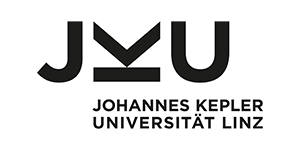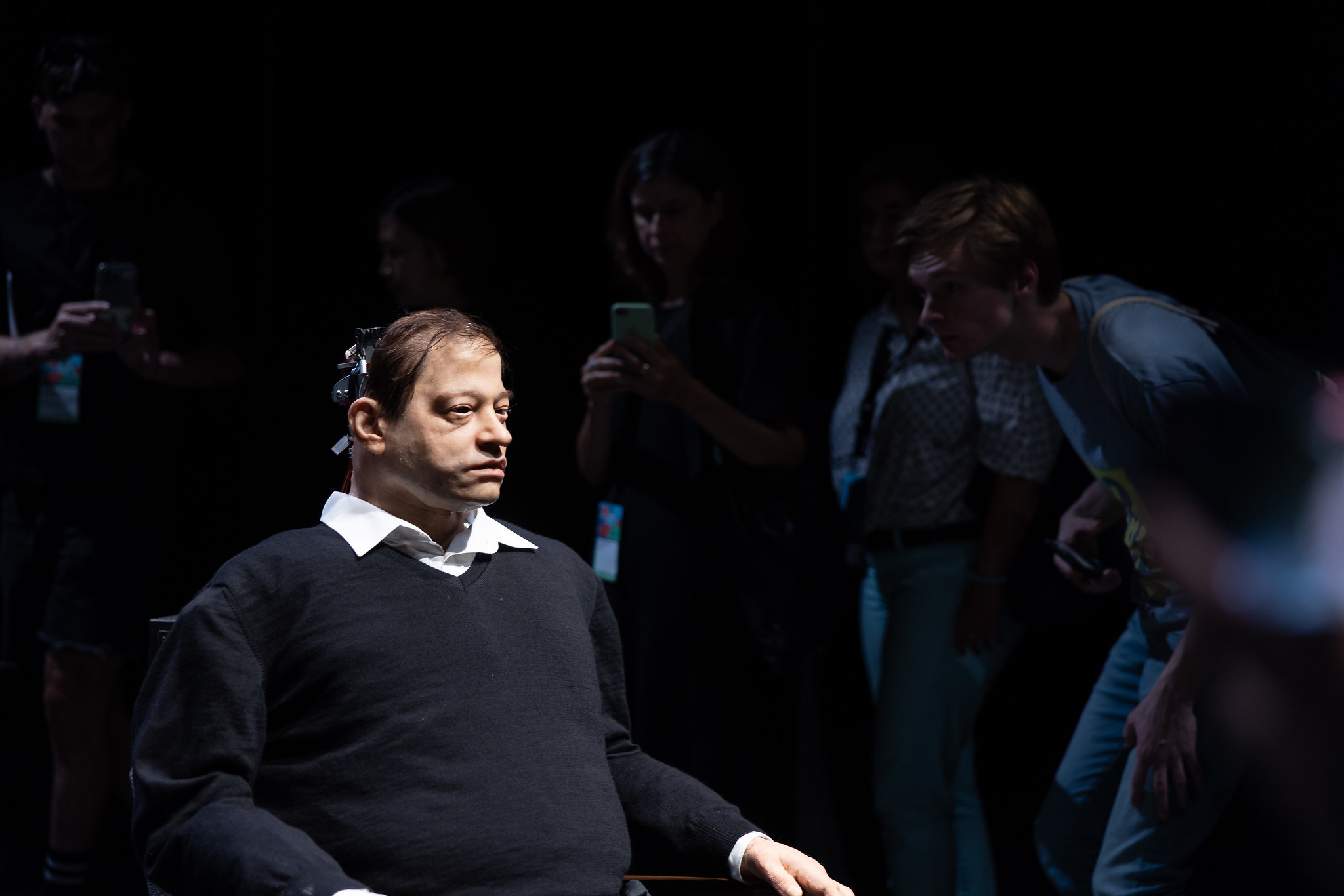Robots are usually thought of as work machines, which perform tasks efficiently and precisely. In German industry, their appearance hardly resembles that of people, to avoid emotional complications. In contrast, humanoid robots have been developed in Asia for some time, for example for care work or as sex partners. The external similarity to humans makes the acceptance of machines easier. However, if the machine is too similar to a human, we begin to feel mistrust: What is human, and what is machine? Japanese robotics researchers call this strange similarity the “uncanny valley”. For his play, Stefan Kaegi worked with a writer and playwright for the first time: Thomas Melle agreed to have an animatronic double made of himself. This humanoid takes the place of the author and raises questions: What does it mean for the original when the copy takes over? Does the original get to know himself better through his electronic double? Do the copy and his original compete with each other or do they help each other?

Meeting Point: Ars Electronica Futurelab, Main Entrance (the building next to Ars Electronica Center, Ars-Electronica-Straße 1, downstairs)
Please note: Please register for this performance.
Stefan Kaegi (DE)
Stefan Kaegi creates documentary theater, radio plays, nomadic concepts and projects in urban spaces in a variety of constellations in which animals and even the audience often play a central role. Together with Helgard Haug and Daniel Wetzel, Kaegi works under the label Rimini Protokoll, which was awarded the Silver Lion for Theatre at the 2011 Venice Biennale.
Rimini Protokoll
In recent years, Rimini Protokoll has staged inter alia the tetralogy State 1-4 on the phenomena of post-democracy, the simulation of a world climate conference at the Schauspielhaus in Hamburg, the jellyfish installation win<>win, and the urban walk Utopolis at the Manchester Festival.
Concept, Text and Direction: Stefan Kaegi
Text / Body / Voice: Thomas Melle
Equipment: Evi Bauer
Animatronic: Chiscreatures Filmeffects GmbH
Manufacturing and Art Finish of the silicone head / coloration and hair: Tommy Opatz
(2023) Manufacturing and Art Finishing of the silicone head and coloring: Ina Chochol;
Hair punching: Susanna Lang;
Mounting-systems and rework animatronics: Jörg Steegmüller/Steegmüller Skulpturen
Dramaturgy: Martin Valdés-Staube
Video Design: Mikko Gaestel
Musik: Nicolas Neecke
Production management Rimini Protokoll / Touring: Monica Ferrari
Light Design / Touring: Robert Läßig
Sound- and Video Design / Touring: Jaromir Zezula
This play from Rimini Protokoll has originally been produced by the Münchner Kammerspiele, in coproduction with Berliner Festspiele – Immersion, donaufestival (Krems), Feodor Elutine (Moscow), FOG Triennale Milano Performing Arts (Milano), Temporada Alta - Festival de Tador de Catalunya (Girona), SPRING Utrecht
Performing rights: Rowohlt Theater Verlag, Reinbek bei Hamburg
The project is presented in collaboration with the Johannes Kepler University (JKU) and the Circus of Knowledge

